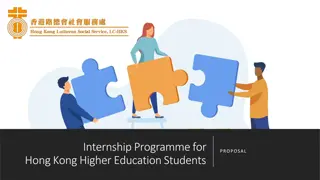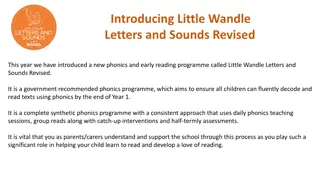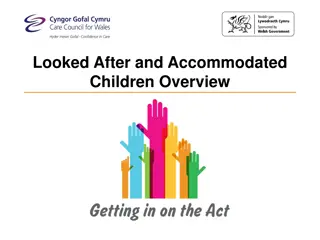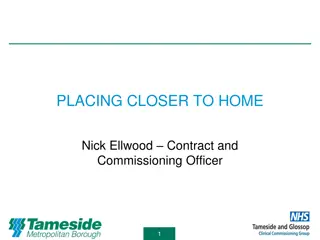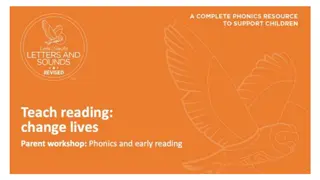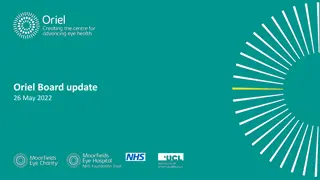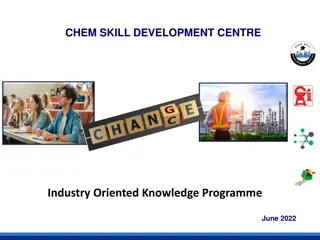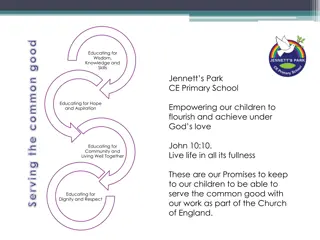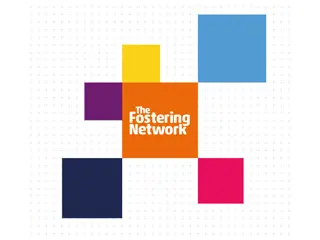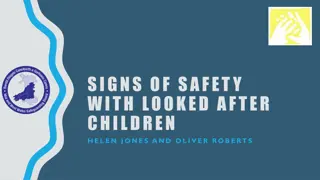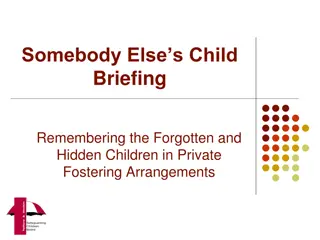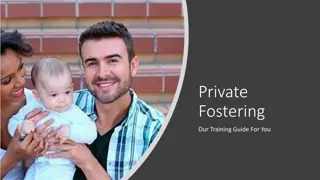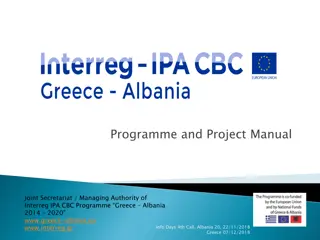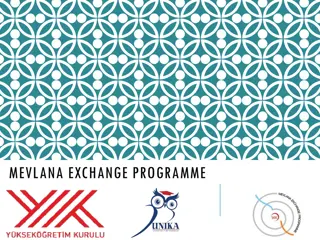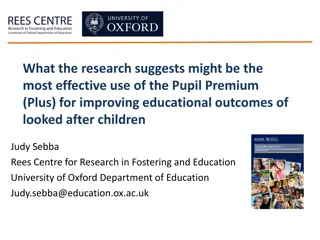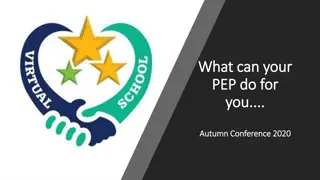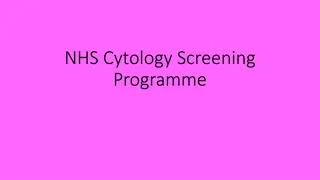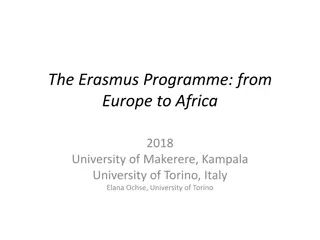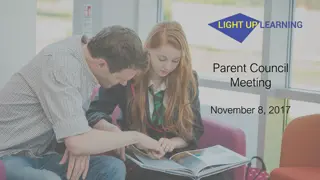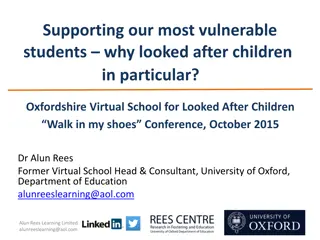Enhancing Education for Looked After Children: The Fostering Potential Programme
Fostering Potential programme, led by Susan Soar and Heidi Austin, aims to improve the educational outcomes of looked after children through enhancing foster carers' knowledge. This initiative seeks to provide support and resources to caregivers, ultimately benefiting the educational prospects of children in foster care.
Download Presentation

Please find below an Image/Link to download the presentation.
The content on the website is provided AS IS for your information and personal use only. It may not be sold, licensed, or shared on other websites without obtaining consent from the author. Download presentation by click this link. If you encounter any issues during the download, it is possible that the publisher has removed the file from their server.
E N D
Presentation Transcript
The Fostering Potential programme Susan Soar, The Fostering Network Heidi Austin, Suffolk County Council
What is the Fostering Potential programme? Aiming to raise the educational outcomes of looked after children by increasing foster carers knowledge and confidence in their role as first educators . Peer support project work across local authorities, supported by an information strand Education Champions (foster carers) working closely with other foster carers Embedded within and adapted by each local authority
What is the background to the programme? Based on the work of previous successful programmes: London Fostering Achievement, London Schools Excellence Fund and Fostering Achievement Further exploration of the Education Champions approach was strongly recommended by the evaluators of London Fostering Achievement Current programme funded by BFSS and Sir John Cass Foundation
What might local project activity look like? Education Champions regularly meeting foster carers 1-1 in their homes or at groups Providing peer-support to foster carers around: How to support their fostered child in Maths/English Meeting individual targets (from PEP) Meeting their fostered child s extra-curricular target Preparation for PEP meetings LA can also hold additional events to support, engage and inspire participants
Where are we now? Project delivery took place in seven local authorities, with the first phase of activity from September 2018 to September 2019. An initial evaluation of the project activity was carried out and the report published November 2019, available on the Fostering Potential webpage. From September 2019 local authorities have been able to adapt the programme with a view to longer term embedding within their services.
Initial evaluation of Fostering Potential: Key messages The greatest impact on foster carers was found to be increasing foster carers confidence in working with their fostered children to support their education. Stakeholders described positive impacts of the project for fostered children. These included improved attainment and confidence, increased interest in learning, greater use of resources and increased foster carer contact with the school. Foster carers also reported positive changes in the activities they do with their fostered children, including completing and discussing homework together, reading together every night and increased use of education websites. Many stakeholders felt that the project has helped to improve the working relationship between fostering services and virtual schools
Fostering Potential in Suffolk: the process Working with the Virtual School to agree a focus area Recruitment of Education Champions Joint training delivered by The Fostering Network and the 16+ Virtual School assistant head Allocation of Carers.
Support from the Fostering Network Facilitation of project brief Tailored training days specific for Suffolk s needs Ongoing support and advice Network meetings with representatives from other Local Authorities Evaluation
What has gone well? Working with the Virtual School Recruitment and training of excellent education advocates Referral service for Foster Carers experiencing difficulties Support Groups / New carers forum
Challenges Geographical Suffolk is a big County! Retention Engagement
Future Developments A whole new cohort of Carers An education Bolt On for our new Toolkit training Further Aspiration Events Embed the project model into Suffolk Fostering Service a more geographical model? More involvement with Social Work colleagues across Children s Services and new Foster Carers
What next? Fostering Potential project work continues until end of April 2020. Supplementary evaluation to explore how the approach has been embedded in local authorities The Fostering Network considering future work incorporating an education peer-support approach, including integration with the Mockingbird programme. Education peer-support training being piloted by the Fostering Network
Thank you www.thefosteringnetwork.org.uk Member helpline: 0207 401 9582



